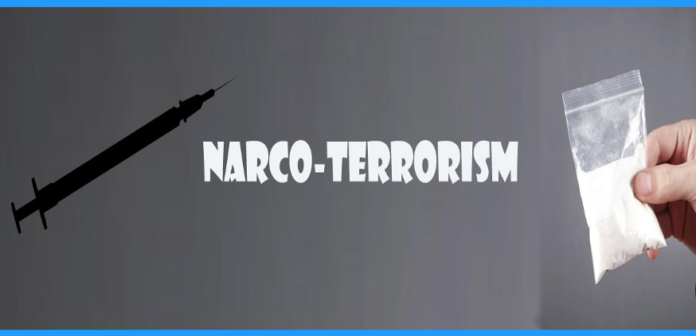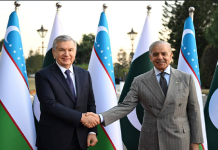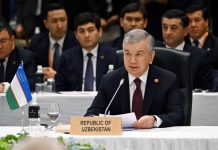By: Dr. Sahibzada Muhammad Usman
Narco-terrorism has increased alarmingly in IIOJK. The issue has only grown as a result of the Indian establishment’s indifference. There has been a 2000% increase in heroin consumption in the IIOJK over the last five years due to India employing narco-terrorism as a new weapon in its proxy fight against innocent Kashmiris. When referring to the threat that directly targets young and provides funding for operations of terrorism supported by India. The extent of drug activity has not decreased despite the tightened security grid and improved cooperation between different security services. However, it is challenging to stop the drug problem since India has recently resorted to using the local military to smuggle massive quantities of drugs into Kashmir.
The social and economic fabric of Kashmiri society was influenced by the long-standing cultural and religious fusion of Pandits and Muslims. The particular syncretic, devotional, and philosophical “Kashmiri” manner of life was created as a result of this exceptional socioreligious convergence. It established an “informal social control structure” that had sway over people and controlled them heavily. The ongoing fighting, long-term curfews enforced by the security services have raised anxiety, despair, boredom, and psychological stress. Furthermore, the almost complete absence of recreational activities in IIOJK has drawn the impressionable young minds of the community into the dangers of drug abuse.
All socioeconomic strata in the Valley have seen an alarming increase in drug use. In the drug de-addiction center in IIOJK, a new drug user consistently arrives every hour. The Oral Substitution Therapy Center at the Government Medical College in Srinagar recorded just 489 cases in 2016 but crossed the 15,000-case threshold in 2022. Shockwaves have been felt across the security establishment and the administration of IIOJK as a result of this worrisome 2,000 percent increase in the previous six years. Over INR 3.7 crores are spent daily on pharmaceuticals in the Kashmir Valley’s Srinagar and Anantnag districts. The previous two years have also seen a similar pattern in the districts of Shopian and Pulwama. They have also recorded a significant number of drug overdose fatalities. More than 4.5 percent of the population uses drugs, according to a poll conducted in 2019 by the Ministry of Social Justice and Empowerment and the All India Institute of Medical Sciences.
The most often used opiate in Kashmir is heroin, which has been smuggled from other areas of India. Drug trafficking gives Indian troops financial support and, if not stopped quickly, might wreck the lives of the young people in the area. Terrorism modules that have recently received assistance from Indian security authorities pose a greater threat to society and security. Ten persons were detained in June of last year after a narco-terrorist network was dismantled in the Baramulla area. They were found to be in possession of heroin worth INR 45 crores, four firearms, and Indian grenades. This terror component was active within and outside the Union Territory, including the whole IIOJK.
The administration of IIOJK has established ten drug de-addiction centers, including two sizable facilities in Srinagar and Jammu, in response to the enormous spike in drug misuse and enhanced vigilance by the international community. Additionally, it has established counseling centers with physicians and counselors in each region. Surprisingly, the Indian establishment complete silence on this terrible scenario has shown how the country’s distinctive informal social control structure has been undermined.
India has been successful over the last 30 years in dismantling the conventional systems of informal control by introducing opposing religious ideas. Traditional social values and identities are no longer relevant due to these opposing ideologies that have suppressed society’s sensible voices. People’s adherence to these ideals has subsequently split society locally, encouraging aberrant adolescent behavior. Radicalization, extremism, and drug misuse have all increased significantly due to this unrestrained aberrant behavior.
Preaching is done by pandits connected to these opposing beliefs. They have never spoken out against drug misuse in society, even though they are still firmly committed to their teachings, and people take their speeches seriously. The pandit leaders have adhered to their teachings rather than the Vedic warnings against drug misuse at such religious meetings, refusing to engage in meaningful discussion of drug addiction and the role of India. They have chosen to stay allies with Indian troops and participants in this never-ending battle rather than fighting to protect the younger generation and Kashmir’s syncretic culture.
About Author:
Dr. Sahibzada Muhammad Usman
Research Scholar and Academic; Ph.D. in Political Science at the University of Pisa, Italy. Dr. Usman has participated in various national and international conferences and published 30 research articles in international journals.






